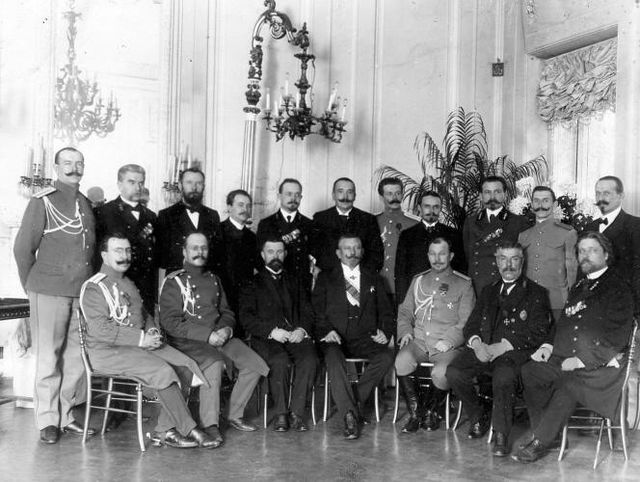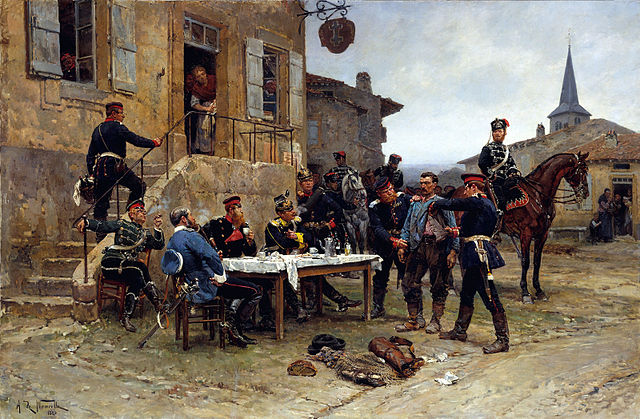Counterintelligence (counter-intelligence) or counterespionage (counter-espionage) is any activity aimed at protecting an agency's intelligence program from an opposition's intelligence service. It includes gathering information and conducting activities to prevent espionage, sabotage, assassinations or other intelligence activities conducted by, for, or on behalf of foreign powers, organizations or persons.
Political cartoon depicting the Afghan Emir Sher Ali with his "friends" the Russian Bear and British Lion (1878). The Great Game saw the rise of systematic espionage and surveillance throughout the region by both powers
The Okhrana, founded in 1880, had the task of countering enemy espionage against Imperial Russia. St. Petersburg Okhrana group photo, 1905
Civilian photo technicians (in back of jeep) working for Counter Intelligence Corps are accounted for at a checkpoint in Potsdam, Germany, July 14, 1945
Espionage, spying, or intelligence gathering is the act of obtaining secret or confidential information (intelligence). A person who commits espionage is called an espionage agent or spy. Any individual or spy ring, in the service of a government, company, criminal organization, or independent operation, can commit espionage. The practice is clandestine, as it is by definition unwelcome. In some circumstances, it may be a legal tool of law enforcement and in others, it may be illegal and punishable by law.
Madame Minna Craucher (right), a Finnish socialite and spy, with her chauffeur Boris Wolkowski (left) in 1930s
An intelligence officer's clothing, accessories, and behavior must be as unremarkable as possible—their lives (and others') may depend on it.
Painting of French spy captured during the Franco-Prussian War






